Parliamentary elections in Poland as a marker of the growth of populism in the world: what should Ukraine expect?
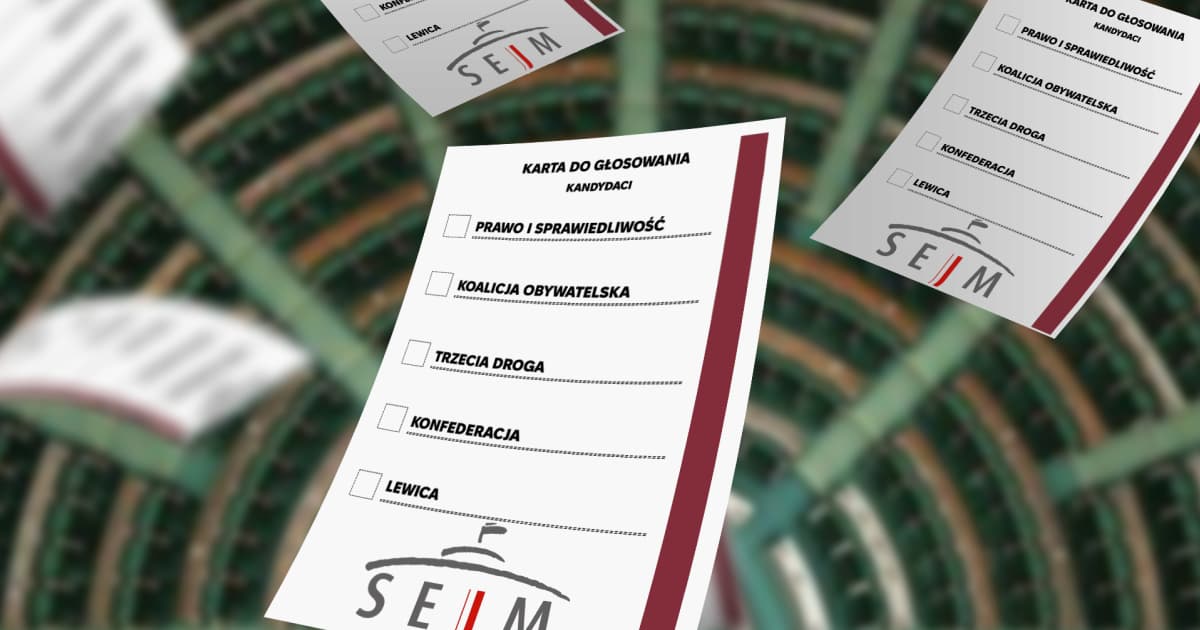
Parliamentary elections in Poland in October 2023 will be a test of support for Ukraine. Not all parties in Poland advocate for full assistance to Ukraine, and some do not even consider Ukraine as an ally. Election results should show whether these sentiments are inherent in Polish society or whether they are cultivated only by individual politicians.
In the material, we talk about the process of the electoral campaign in Poland and the position of the candidates regarding Ukraine.
Law and Justice
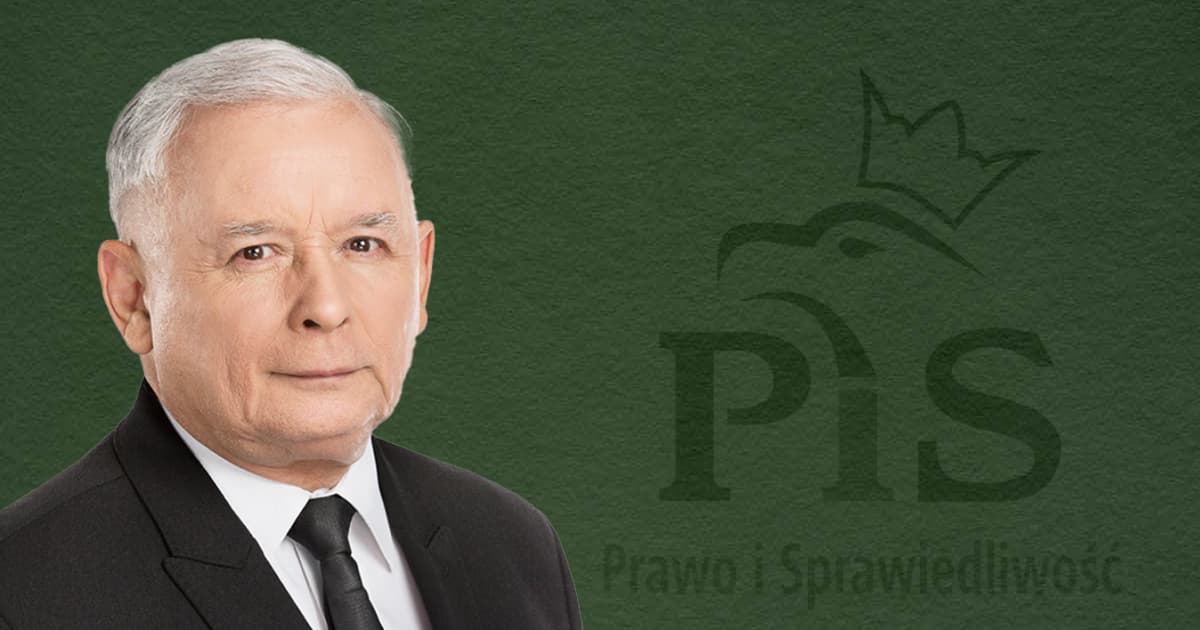
The ruling Polish party is trying to get a majority in the Sejm for the third time. The COVID-19 pandemic, the subsequent economic crisis, and Russia's full-scale invasion into Ukraine affected the party's election campaign. Law and Justice promises its voters to increase social benefits and pensions, a 20% increase in the minimum wage, an increase in the number of army personnel, and rearmament of the army.
Law and Justice highlights in the program a promise to veto the decision of the European Commission on the acceptance of migrants in the European Union. This is not the first time the party has used the immigration argument in the elections. However, in 2019, they promised to close Poland's borders to refugees, but in 2023, they promise to influence the EU's decision on this issue.
Law and Justice concentrates precisely on these issues because it understands its electorate: residents of villages and small towns aged 45 and older, conservative and religious. They are not interested in EU politics or are even skeptical about the union.

Ukraine is also a part of the Law and Justice's election campaign. The party promises to continue to support Ukraine but undertakes to "monitor trade flows with Ukraine." Law and Justice implements the second pledge during the campaign. The ban on the import of Ukrainian grain is a confirmation of this. The party does this in order to satisfy the demands of one of its largest groups of voters – Polish farmers. Almost half of all farmers in the country are ready to vote for the party (and according to the Centre for Public Opinion Research (CBOS), 14.6% of potential Law and Justice voters are ready to vote for them because "their politicians are the most reliable, honest and implement their campaign slogans").
"If someone thinks that farmers have turned away from Law and Justice, they are wrong. This group will vote according to its interests, and the ruling party will respond to the demands of farmers," says Marcin Duma, head of the IBRIS Institute for Social Research.
Civic Coalition
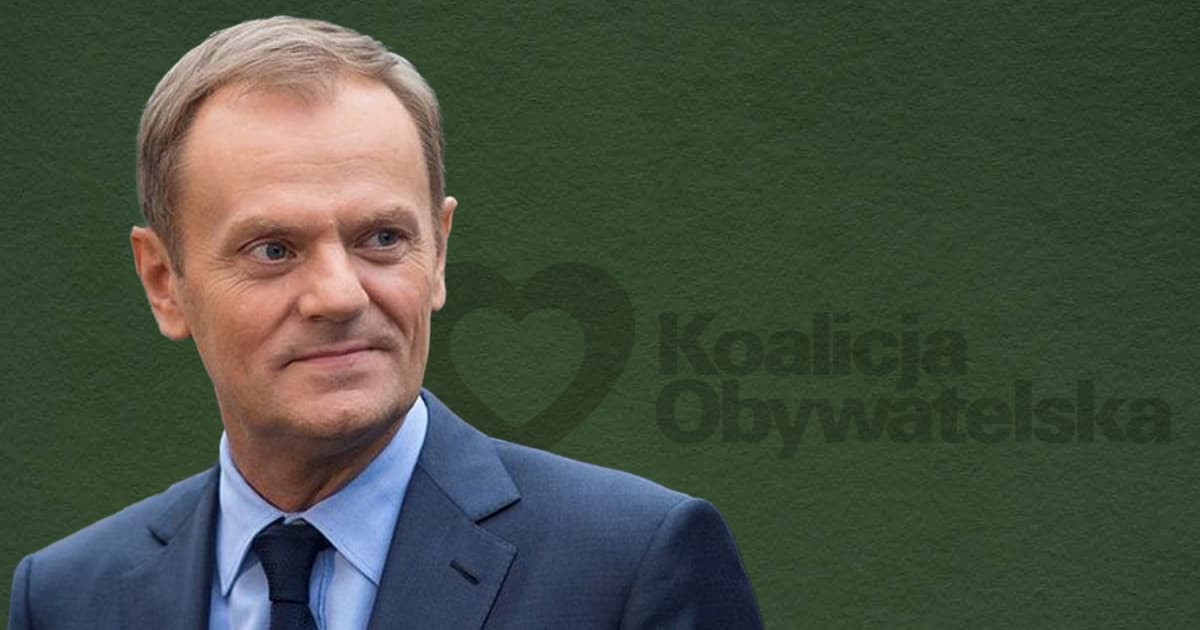
The largest opposition party in Poland – Civic Coalition – is going to the elections under the slogans of the opposition to its actions to Law and Justice. If Law and Justice is ready to enter into a dispute with the European Union, the Civic Coalition will strengthen cooperation with the EU on the contrary. If Law and Justice promises to rearm and expand the army, then the Civic Coalition will first arrange an audit of law enforcement agencies and the army.
The Civic Coalition also proposes expanding social programs for pensioners and young families and promises to implement measures to preserve the environment. Green policy is one of the main directions of the civil opposition in the election program. The party proposes to ban fur farms and implement labeling of fresh products in stores with the flag of the country of origin. Polish farmers, who are one of the conservative groups of voters, treat the Civic Coalition with suspicion.

More than 40% of those who are ready to vote for the Civic Coalition are those who are tired of the rule of Law and Justice. More than 12% of Civic Coalition voters consider this party to be the 'lesser evil.' Only 10% of their voters care about the party's program regarding legislation, social policy, and relations with the EU and Ukraine.
The position of the Civic Coalition regarding Ukraine is also different from the position of Law and Justice. The leaders promise to continue providing humanitarian and military aid and criticize the decisions of the ruling party, including the ban on grain imports. On September 22, the head of the party, Donald Tusk, proposed "to create an infrastructure that will not hinder the transit of Ukrainian products through Poland but will not allow them to remain in the country."
Third Way
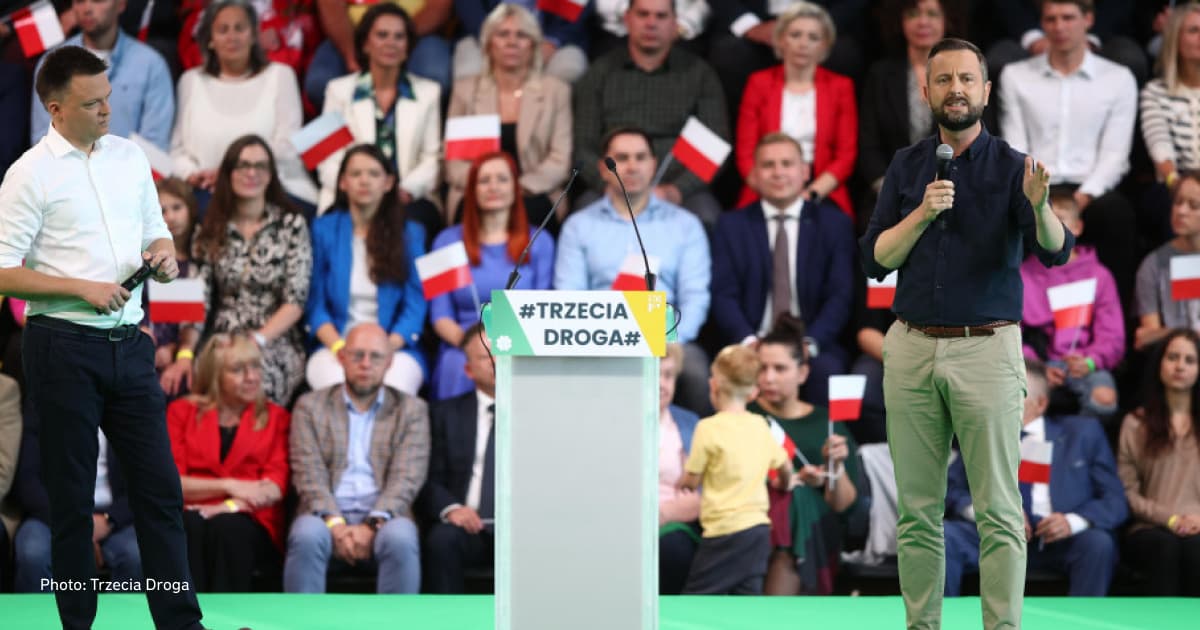
Third Way is a new project of the "Polish People's Party" of a centrist and Christian-democratic character. The party focuses on those who are tired of Law and Justice and Civil Coalition. Its pre-election program includes supporting farmers with subsidies, reforming the Prosecutor General's Office, investing in the Polish arms industry, and a deposit system for importing agricultural products from Ukraine.
Voters of the Third Way are quite diverse: they come from both villages and big cities and have different educations. The only thing that unites them is the age category. People over the age of 34 are ready to vote for the party. 40% of the Third Way voters will vote for the party because of the compatibility of the program with their worldview.
The party implements the Ukrainian issue according to its centrist views – cautiously and without a clear plan. The leaders declare that they will continue to provide military aid to Ukraine and limit imports through the deposit system. In this way, the party plans to "ensure the safe transit of products and stop the uncontrolled import of food products from Ukraine."
Confederation and Left
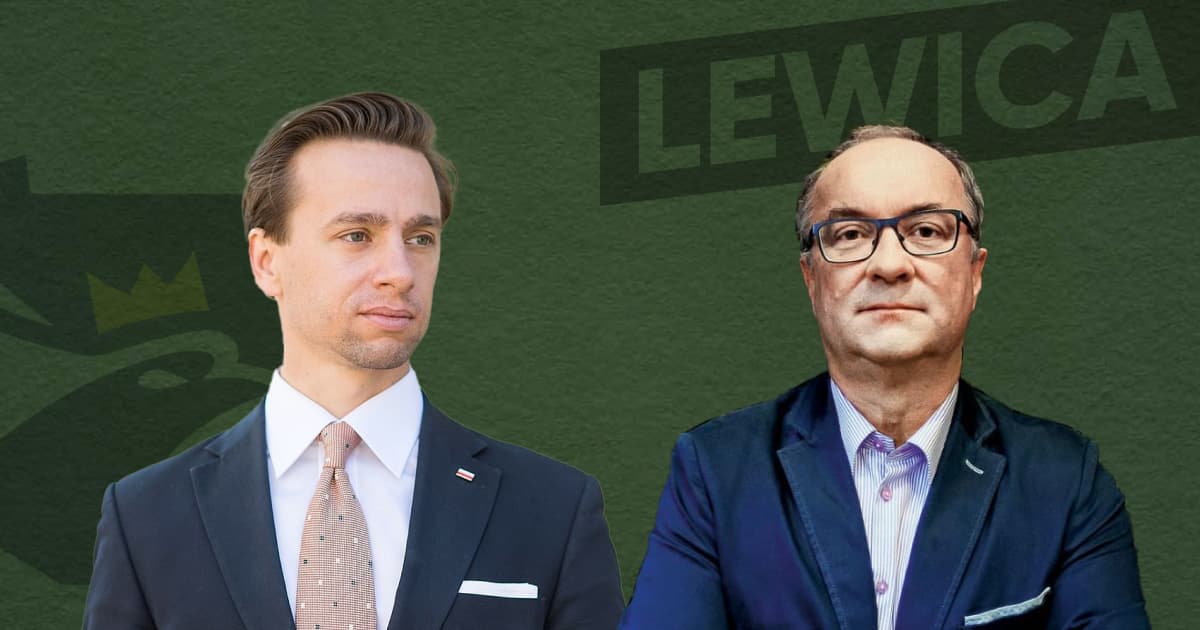
The Confederation Liberty and Independence and the Left are two associations of smaller political parties that participate in the elections under the same projects. The two groups can be characterized by the fact that they are on different sides of the political spectrum.
The Confederation positions itself as a Eurosceptic, conservative, radical right-wing union. Left is an association of Polish left-wing socialist movements. Both were formed before the 2019 parliamentary elections and ended up in the Polish Sejm. Confederation gained more than 6% of votes, Left — more than 12%.
During the election campaign, both movements present their programs, adhering to their ideologies. The Confederation advocates for the withdrawal of Poland from the European Union, the closure of borders for refugees, the closure of the land market for foreign capital, the termination of aid to Ukraine, and a complete embargo on the import and transit of Ukrainian products.

The program of the Left includes the legalization of abortions up to 12 weeks, the introduction of a system of increasing income tax depending on the increase in income, strengthening cooperation of Poland in European Union projects, including security projects, strengthening the sanctions policy against Russia, and supporting Ukraine.
The new movements have a young electorate. Young people aged 18 to 29 are ready to vote for the Confederation and the Left. Voters of both groups are similar: they have higher or unfinished higher education, come from cities and agglomerations, and speak at least one foreign language. The only difference between them is that men will vote for the Confederation, and women will vote for the Left.
Views on Ukraine in both movements differ. The Left is the only party among those possibly gaining the passing percentage of the electoral vote that has included Ukraine in its program in the section on foreign relations. The Confederation promises to stop the supply of military and humanitarian aid and to completely close the border to Ukrainian imports of any kind. One of the leaders of the movement – Grzegorz Braun – acts under the slogan "Stop the Ukrainization of Poland."
The potential future of the Polish government
According to sociological surveys, 32% of Poles will vote for Law and Justice. This is 11% less than the results of the 2019 elections.
The results of the survey by the research company Ipsos show that Law and Justice is losing young people who are radicalized and choose politicians according to its demands. Young people
are also tired of the ruling party. "Law and Justice is the party of the elderly," says the editor-in-chief of Oko.press Piotr Pacewicz.
28% are ready to vote for the Civic Coalition. The party lost at least 4% of potential voters during the campaign. Polish journalists believe that the attention of the opposition party to Law and Justice theses prevents them from gaining votes.
"The excessive concentration of Civic Coalition on the fight against Law and Justice makes the answer to the key question of the elections "what should the new Poland be?" less important. It is ineffective," says journalist and activist Aleks Szczerbiak.
Third Way continues to rise in the rating. According to a poll by Gazeta Prawna, 10% of surveyed voters were ready to vote for this party in September, and more than 11% were ready to vote for it at the beginning of October. Party leader Szymon Hołownia has not yet announced who he would like to join a coalition with. The Third Way ignored the invitation of the Civic Coalition to the "Million Hearts March" in Warsaw.
Both Confederation and Left have 9% of the polled votes. This is an increase for the Confederation compared to the 2019 elections when they won 6% of the vote. However, it is a decline for the Left: they had more than 12% of the votes in the previous term of the parliament.
"80% of young people are not satisfied with the current political situation, they are not satisfied with either the leader of the Civic Coalition, Donald Tusk, or the leader of Law and Justice, Jarosłav Kaczyński. It is a mass dissatisfaction that encourages alternative parties to reach young voters," explains Polish journalist Roman Broszkowski.


